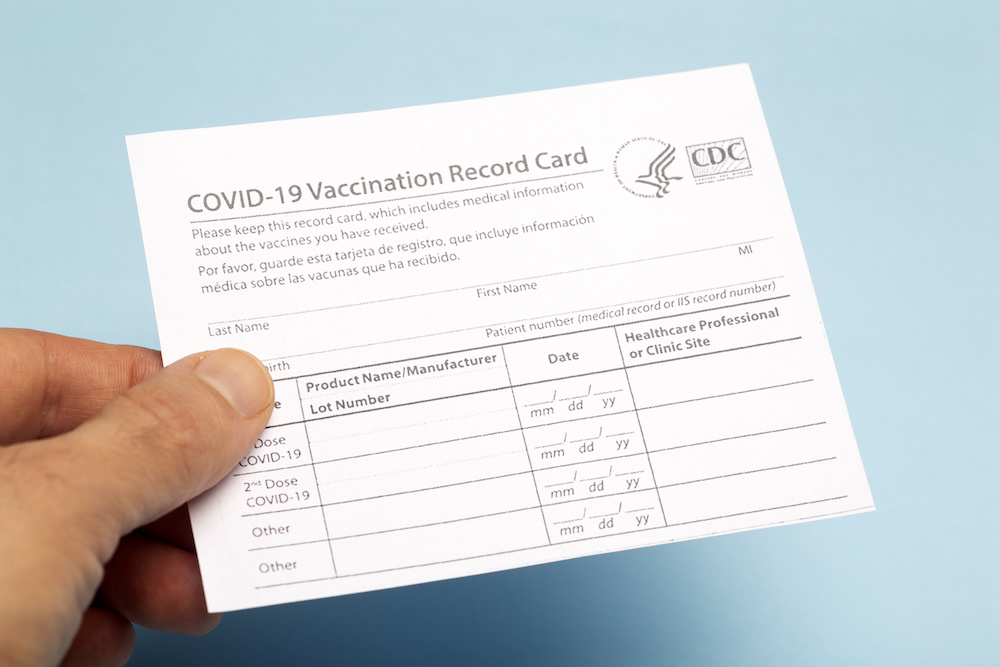This week the CDC announced that over 50% of the US population is now vaccinated against COVID-19, which means 50% of Americans are now proud owners of a CDC-issued vaccine card. Business travel is also trending upward and more companies are getting back on the road. This is all great news! But planning business travel in a post-pandemic world isn’t as simple as it once was.
If you’re heading out on the road, it’s likely that you’ll need to prove your vaccination status (or have a negative COVID test within 72 hours handy - check out the AmTrav COVID Resource Center for up-to-date travel requirements and restrictions). You might be wondering what that means, how you’re supposed to prove your vaccination status, or if you need a vaccine passport.
While they are all very similar, there is some nuance when it comes to vaccine cards, vaccine passports, and proof of vaccination - here’s what you need to know.
Vaccine Cards
After getting your COVID vaccine in the US you’ll receive a physical paper card from the CDC called the COVID-19 Vaccination Record Card. The card notes when and where you were vaccinated and the type of vaccine you received. This is your vaccine card. Right now when you travel you should keep it with you just in case you need proof of vaccination (more on that below).
If you happen to lose your vaccine card, you can get a new one at the location where you received your vaccination or through the state health department - they should have an internal record of your vaccination.
Vaccine Passports
A vaccine passport is basically the digital version of your CDC-issued vaccine card. It’s an app that holds information related to your health like your vaccination records or COVID-19 test results. There are many different versions of vaccine passports available right now, including Clear Health Pass, VeriFLY, CommonPass, and IATA Travel Pass.
Vaccine passports are no strangers to controversy (we’ve written about it before), but it’s important to understand what they are and how they work as some countries do require them for entry.
Just keep in mind that if you have your physical CDC vaccine card, you shouldn’t need a vaccine passport unless it’s required.
Proof of Vaccination
This just means that you need some sort of proof that you’ve been fully vaccinated (you’re considered fully vaccinated two weeks after your final dose of the vaccine). You can show your CDC-issued vaccine card, a photo of it, or present your vaccine passport as proof of vaccination.
Some countries have begun allowing travelers to skip mandatory quarantines and testing requirements with proof of vaccination status (and some are requiring it for entry). In other places, proof of vaccination is required to enter large-scale events like a sporting event or concert or to avoid wearing a mask and social distancing.
There’s a lot to be excited about as the world opens back up and business travelers get back out there. There’s also a lot to keep track of and a lot of buzzwords surrounding travel right now. If you’re planning a business trip or getting ready to start traveling again in the post-pandemic world please reach out if you have any questions. We know this can all get confusing and we’re ready to help however we can!

Cassie Sclafani





